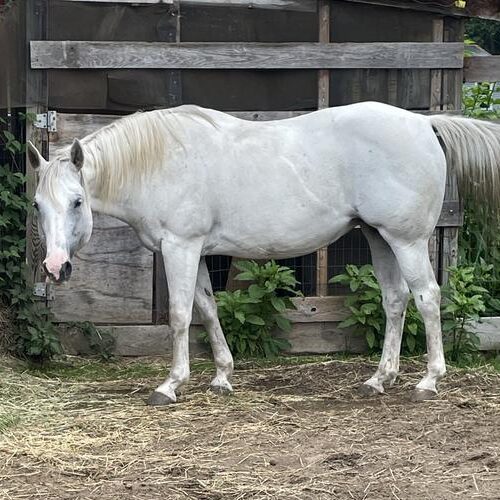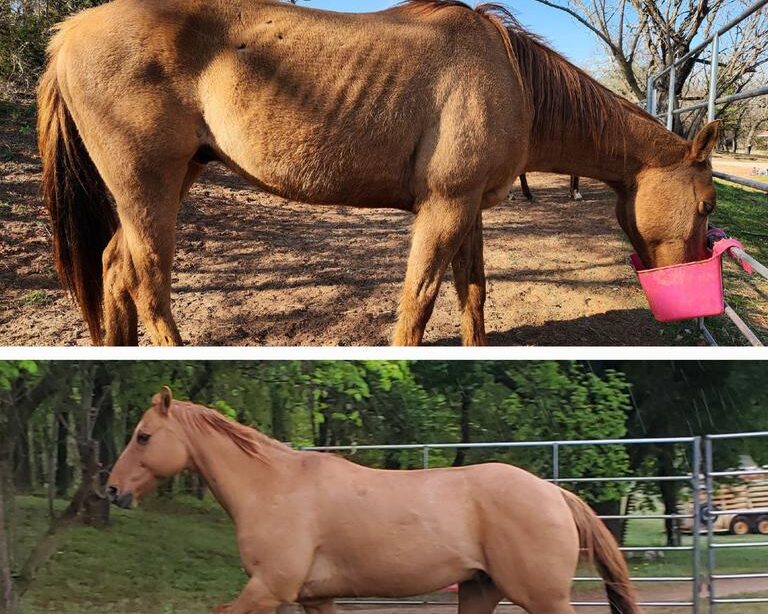
Horse Feed for Digestion
What is the best feed for horses with digestive health concerns? Find out what ingredients set Nutrena® horse feed apart from other horse feed brands on the market and why we provide the best support for your horse’s stomach, foregut, and hindgut.
FAQs About Feeding Horses with Digestive Concerns
If you’re a horse owner trying to understand the digestive system and gastric support, it’s important to read these frequently asked questions about ingredients, diet requirements, and what is guaranteed on your feeding tag. In order to choose the best horse feed for digestion, you have to know what factors go into gut health and how to compare different products on the market.
-
Why is your horse’s gut important?
Maintaining a balanced digestive system is critical to overall horse health. The digestive tract, or “gut,” of the horse is responsible for breaking down (digesting) and absorbing nutrients found in feedstuffs. The microbial population within the gut also plays a role in producing key vitamins. And by some estimates, the gut is responsible for 70% of the horse’s immune system. Gut health refers to both the integrity of the gastrointestinal tract and the balance of microorganisms that live in the digestive tract.
-
What are signs a horse’s gut health is off balance?
While there is no one foolproof method, there are some signs that something may be wrong with a horse’s gut balance. Gastric ulcers may present as horses being unwilling to eat (particularly concentrates), being “cinchy” or reactive to being saddled, or resistant to being touched/brushed, or as behavioral problems under saddle. Horses lacking a good body condition, or horses that suffer from frequent colic, diarrhea, or a suppressed immune system, may have an imbalance in the microbiome. It’s important to note that each horse has a unique microbiome as well, so just as in humans, one horse may have a more easily upset gut-flora balance than another.
-
How does Nutrena feed support gut health differently than other feed brands?
First, the Nutrena brand changed the feed industry over 20 years ago with the debut of the original SafeChoice® horse feed, the first-ever controlled starch horse feed to hit the market. Prior to the launch of the original SafeChoice feed, unknown starch and sugar content levels were the norm in the feed industry. While starch and sugar are effective and efficient calorie sources in horse feeds, excess intakes per meal, particularly for starch, can lead to problems in the horse. By “controlling” and setting maximums on the starch and sugar levels, our SafeChoice horse feed provided a new direction in the feed industry and helped reduce the prevalence of digestive concerns for a wide variety of horses.
Throughout the years, Nutrena has continued to focus on digestive health by including ingredients such as Pre and Probiotics and organic trace mineral complexes to support a healthy gut. Then in 2023, Nutrena relaunched SafeChoice formulas, being the first feed on the market to offer a complete Digestive Shield™ with Controlled Starch, Pre + Pro +Postbiotics and Calcite to help optimize the entire digestive tract. In 2025, ProForce now also includes this proprietary formula to support the horse’s gut and immune system.
-
What is “Calcite” and why is it an important ingredient for gut health?
One approach to preventing gastric ulcers is the use of buffering agents to help increase the pH of the stomach between meals. Calcium in the diet is a natural buffering agent, however, studies have shown that a marine-derived calcium, known as Calcite, has up to 2x greater buffering capacity when compared to calcium carbonate normally used in horse feeds. Calcite’s greater buffering capacity can be attributed to its more porous surface area.
In addition to helping buffer in the stomach, research has also shown a beneficial buffering effect of Calcite in the horse’s hindgut (cecum and large intestine). In times of extreme stress or illness, the horse’s hindgut can experience a rapid decline in pH, known as acidosis. This acidic environment can be damaging to the microbial population, cause inflammation in the gut, and initiate a cascade of damaging effects for the horse. Helping to buffer or maintain hindgut pH, then, can help keep the horse’s hindgut functioning normally.
-
What are “Prebiotics, Probiotics and Postbiotics” and why are they important ingredients for gut health?
Pre + Pro + Postbiotics work with naturally occurring “good bugs” in the horse’s hindgut to support optimal immune health, aid in the digestion process, and provide a buffer against bad bacteria.
Prebiotics: These are the nutrients that beneficial bacteria eat – in other words, “the fuel” for the “good bugs.” Prebiotics help stabilize the population of microorganisms when, for example, there are sudden changes in a horse’s diet, which helps to reduce digestive upset. They can stimulate the growth and activity of beneficial microorganisms, which benefit the horse by enhancing the absorption and retention of certain nutrients. Promoting “good” micro-organisms can also help keep populations of less desirable microbes in check, a concept known as competitive exclusion.
Probiotics: These are living microorganisms — “the factories” — that can be added to a horse’s diet to help balance its gut flora population. Providing more beneficial bacteria has been shown to increase nutrient digestibility and shift the balance of microbes in a positive way. Probiotics can be measured on a feed tag by the measure of Colony Forming Units (CFU) per pound of feed declared on the tag. In general, the higher the CFU/lb. level, the better, as long as you are comparing similar strains and products of equal stability. Understanding the value of specific strains, such as the inhibitory effects of Bacillus subtilis can also be useful as not all probiotic strains play the same role.
Postbiotics: A postbiotic is the combination of inanimate microorganisms, both intact and cell wall fragments/structures, and their metabolites that when fed back to an animal confer a health benefit. Postbiotics are often considered “the goods” if the microorganisms themselves are the factories. While microorganisms within the animal certainly produce “goods” in the form of volatile fatty acids (an energy source), vitamins, and more, fermentation of yeast and bacteria outside the animal creates a unique profile of metabolites. These metabolites when consumed in the feed as Postbiotics then serve as signaling molecules for a variety of physiologic functions including enhanced immune response. The signaling molecules can also support other microbes to further stabilize the microbiome.
Save with our See the Difference Trial
Recommended Products
-
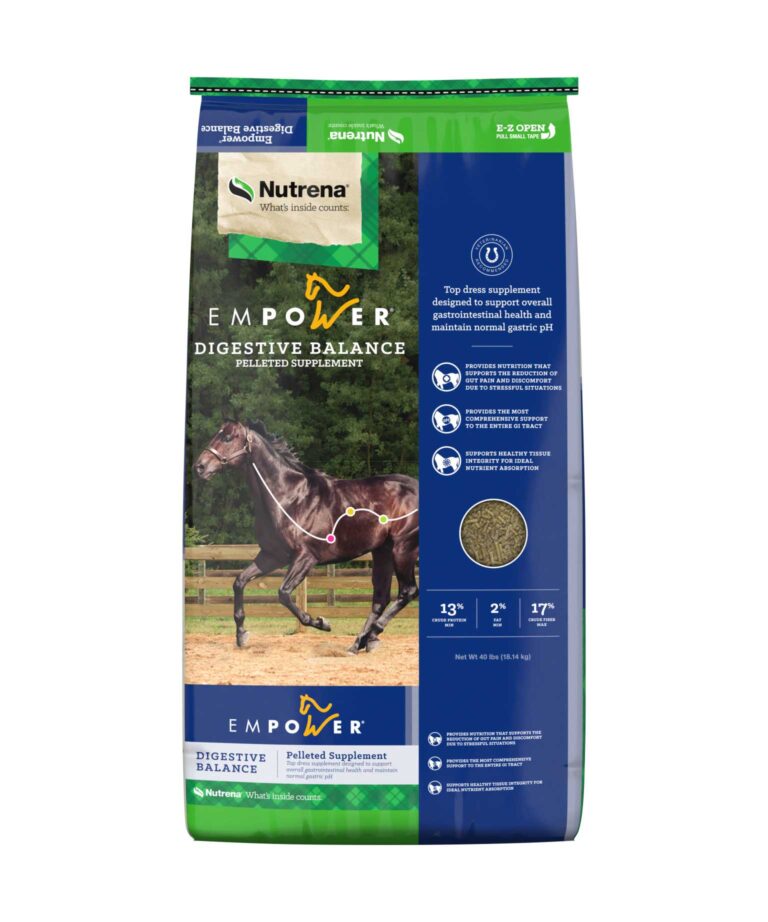 Empower
Empower
Digestive Balance
13.0% Crude Protein17.0% Max Crude Fiber2.0% Crude FatA pelleted top dress supplement designed to support overall gastrointestinal health and maintain normal gastric pHLearn More -
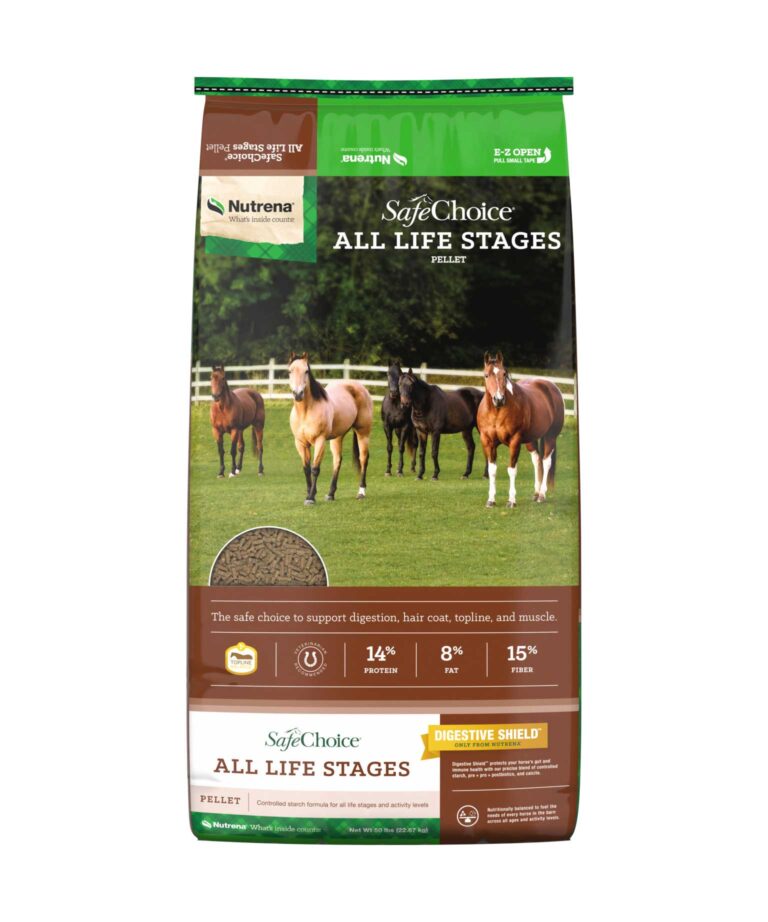 SafeChoice
SafeChoice
All Life Stages
14.0% Crude Protein15.0% Max Crude Fiber8.0% Crude FatNutritionally balanced, controlled starch formula for all life stages and activity levels including performance horses – now with Digestive Shield™Learn More -
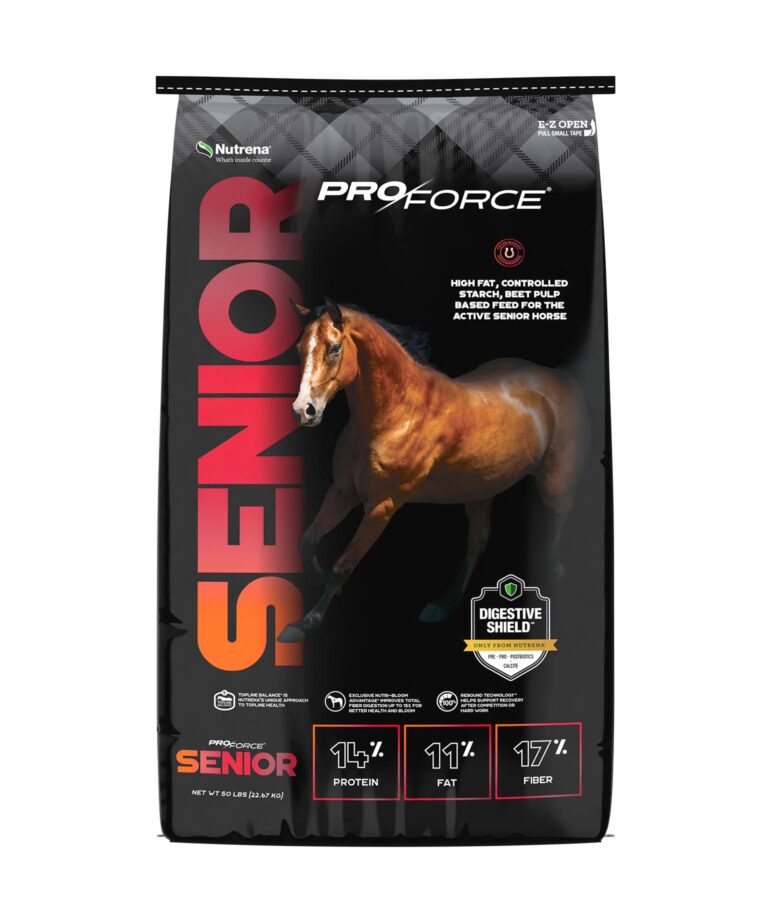 ProForce
ProForce
Senior
14.0% Crude Protein17.0% Max Crude Fiber11.0% Crude FatHigh fat, beet pulp based complete feed for the needs of active senior horsesLearn More
Get a FREE Consultation
Fill out our Contact Us form for an equine nutrition expert to provide 1-on-1 recommendations for your feeding program.
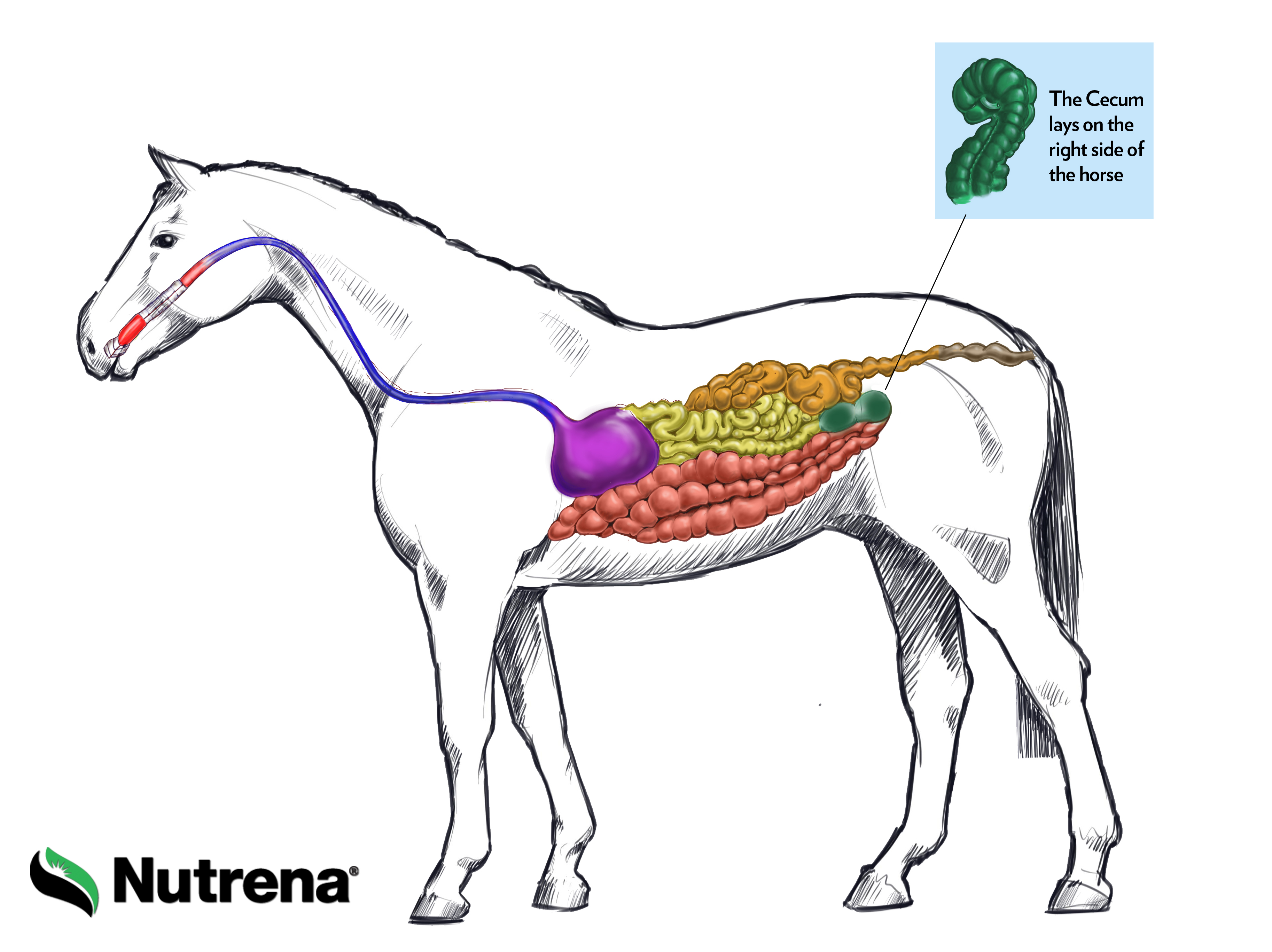
Nutri-Bloom Advantage®
Only from Nutrena
What if something in the feed formula could help a horse better digest the hay, pasture, and feed they eat? Nutri-Bloom Advantage, a proprietary digestive health blend built into SafeChoice® Feeds and ProForce® Senior, can help overcome some of these obstacles. By improving the horse’s digestive efficiency, more calories can be extracted from the less-than-ideal hay. In fact, in a research study, horses who consumed diets fortified with Nutri-Bloom Advantage demonstrated up to 15% improvement in apparent fiber digestibility from their hay and feed concentrate rations.
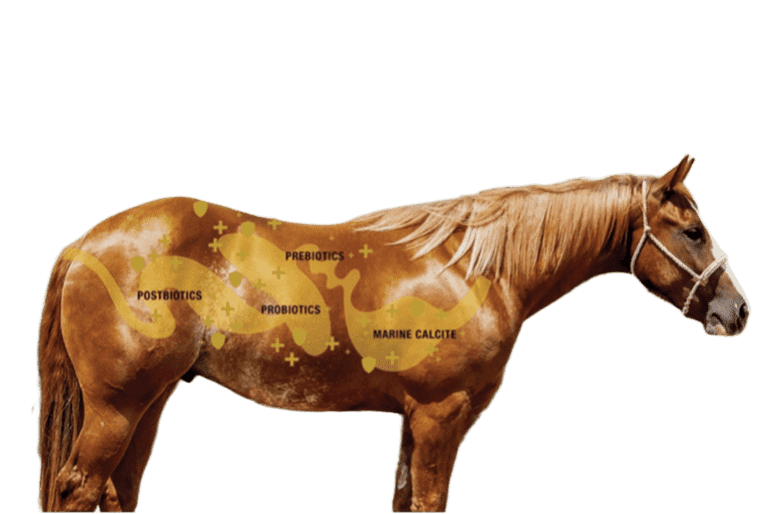
Digestive Shield™
Only from Nutrena
Okay this is it – Digestive Shield™ is a new technology, exclusive to the Nutrena® brand, that supports gut health from end-to-end with a unique combination of controlled starch, calcite and pre + pro + postbiotics. Digestive Shield™ is one more way Nutrena® continues to work to promote the health and well-being of horses. Unlike some other horse feed, Nutrena ProForce and Nutrena SafeChoice guarantees pre + pro + postbiotics on our feed tags, so you can support your horse’s immune system and gut health, maintain microbiome and stomach pH, balance digestive system, digestive tract, overall health and performance.
Related Topics
-

Starch and Sugar in Horse Feed
When people ask about “low-carb” diets, they’re really asking about low non-structural carbohydrate (NSC) diets. Learn the role starch and sugar play in your horse’s diet and the benefits of a controlled starch horse feed.
View Blog -

Reducing the Risk of Colic
About 4% of the horse population experiences colic each year. Feeding management and non-feeding-related management practices can all have an impact on reducing the risk of colic.
View Blog -
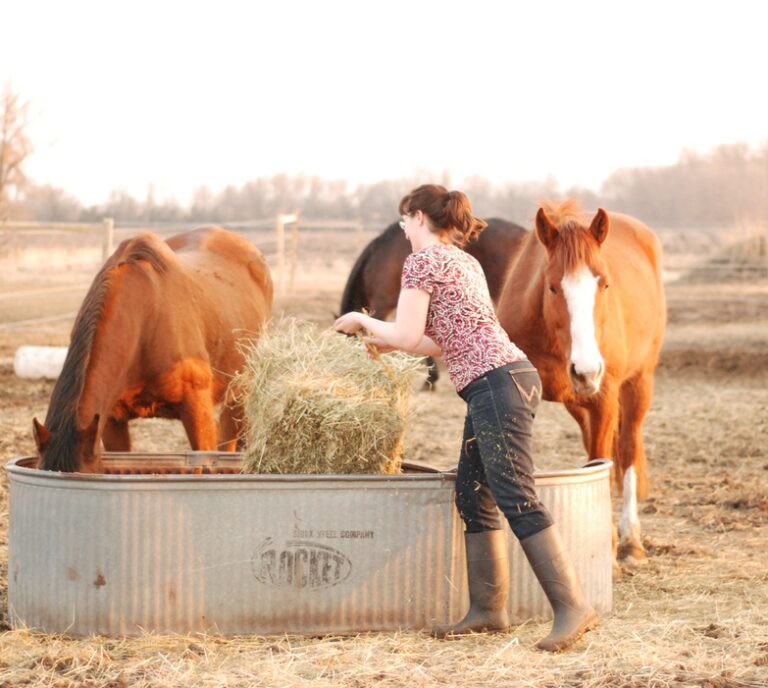
Using Nutrition to Manage Horses with Gastric Ulcers
Gastric ulcers are a horse owner’s worst nightmare. Optimizing their diet and taking these “back to basic” steps can help manage horses with gastric ulcers.
View Blog -
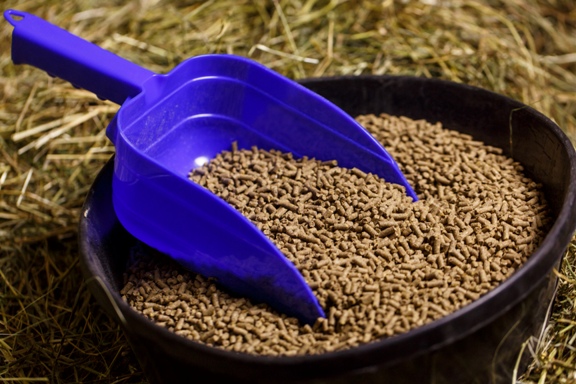
Prebiotics and Probiotics in Horse Feed
Have you ever wondered if you should be using prebiotics or probiotics in your horse feed? This info helps explain the benefits of both!
View Blog
*Review collected as part of incentivized campaign


